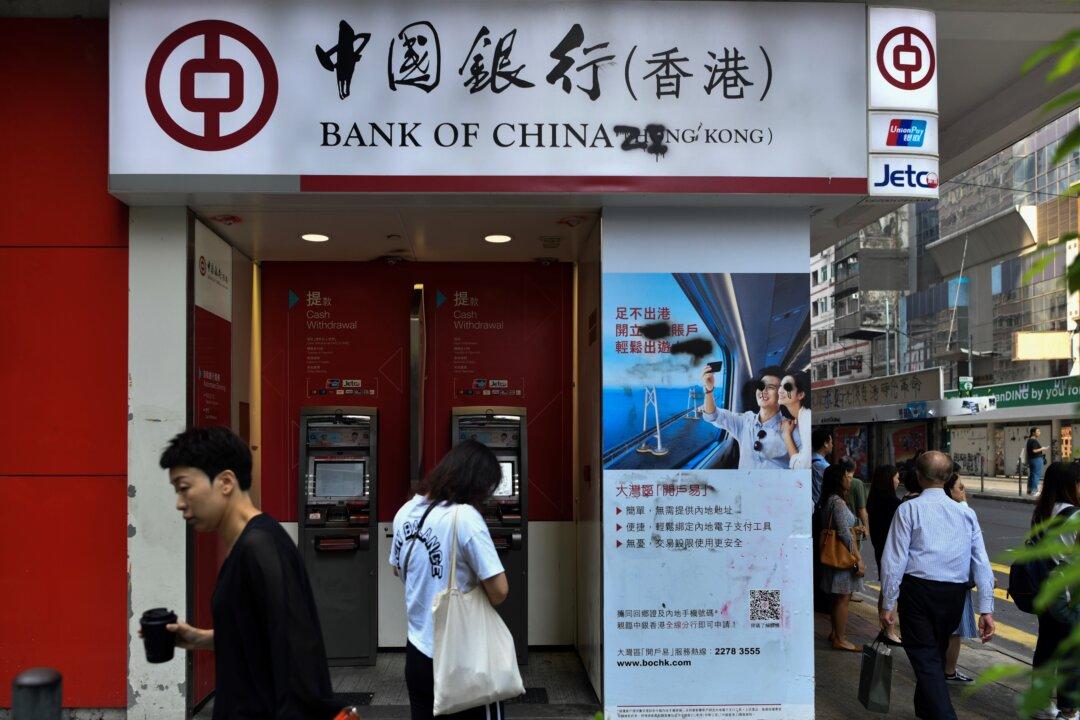Local media recently reported that Hong Kong’s central banking institution has begun monitoring capital flows.
Worried this could signal that the government would soon limit bank withdrawals, many Hongkongers have begun lining up in front of ATM machines to pick up cash.





